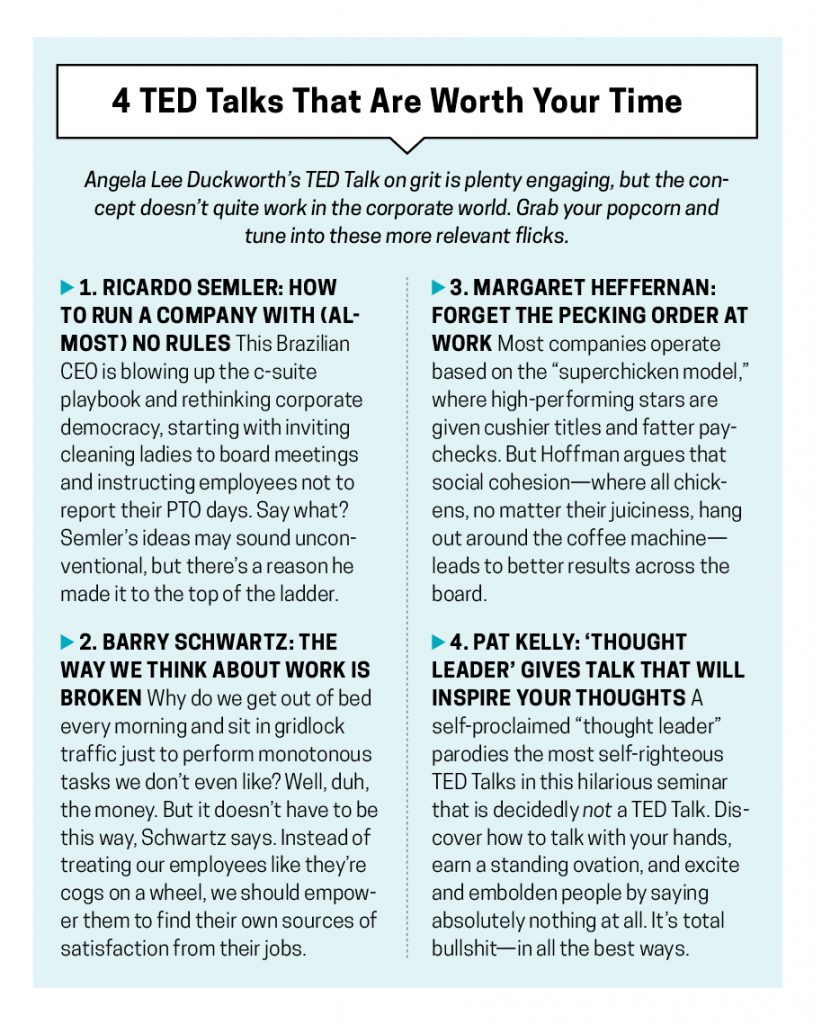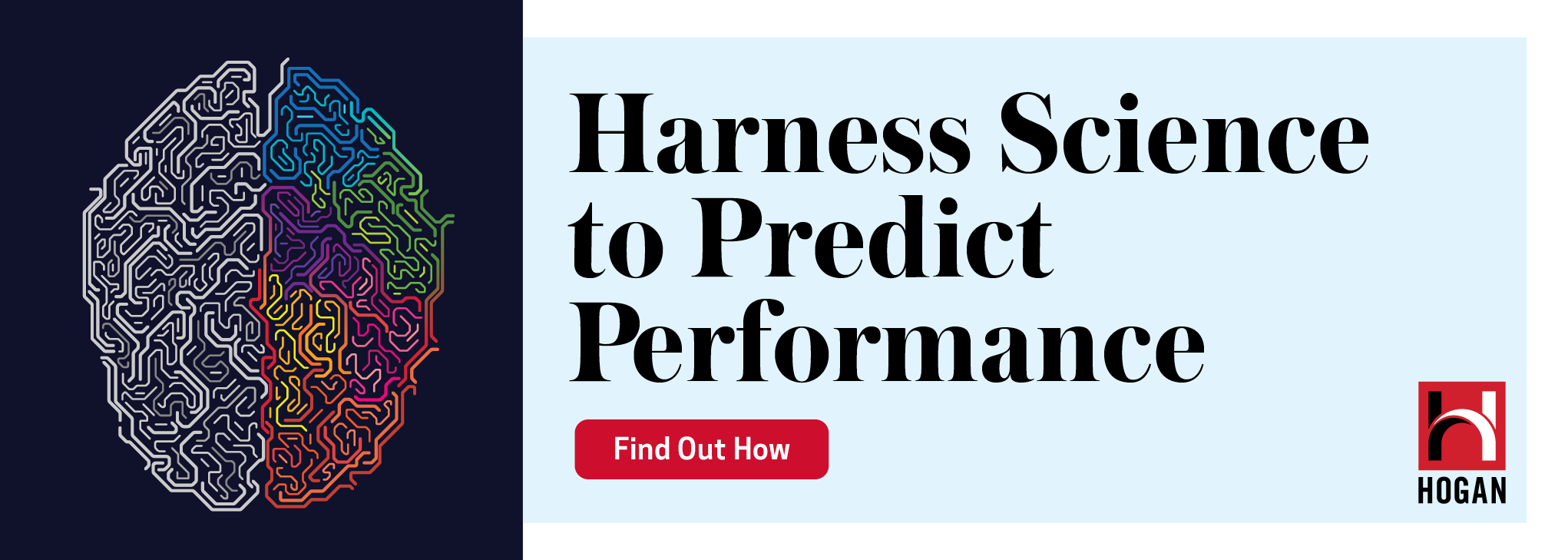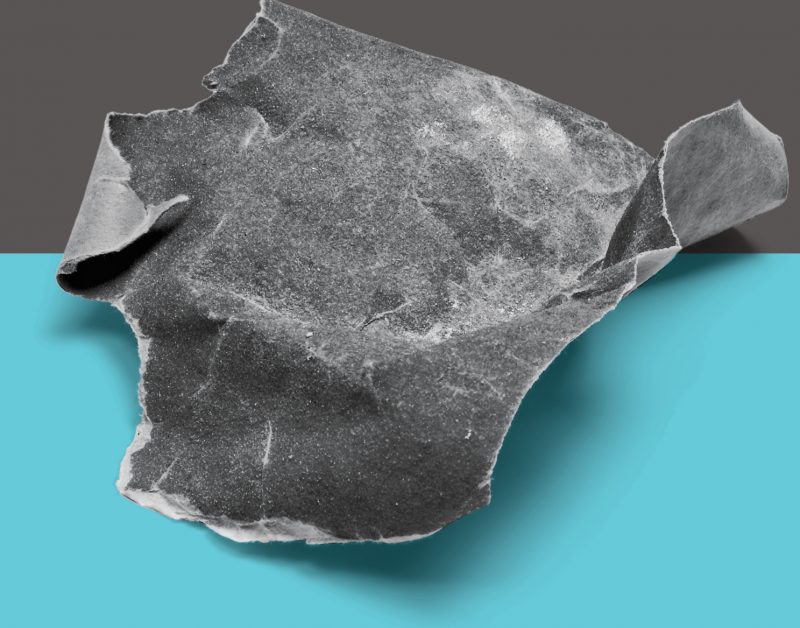The concept of grit is hot in HR circles. Too bad it’s not real.
By Ryne Sherman, Ph.D.
Grit is a popular word among sports writers. When an undersized, lead-footed infielder turns a dazzling double play despite his athletic limitations, baseball scribes say that player exhibits grit.
The truth? It’s merely a convenient way to describe an athlete who isn’t especially good in the traditional sense. (See also: “scrappy,” “gutsy,” and “a winner.”)
But grit doesn’t just exist in sports. It’s become something of a psychological phenomenon in business: In 2007, Angela Lee Duckworth introduced the world to the term, defining it as the degree to which a person has “perseverance and passion for long-term goals.”
Sign up for the monthly TalentQ Newsletter, an essential roundup of news and insights that will help you make critical talent decisions.
At face value, grit seems important to HR professionals for identifying and selecting talent. People who persevere in the face of challenges and remain passionate are more likely to achieve success, right?
Indeed, Duckworth and her colleagues showed that grit can predict GPA, education attainment, spelling bee performance, and even retention at West Point.
These findings led to a bestselling book, a widely viewed TED Talk, and a MacArthur Genius grant for Duckworth. Researchers say grit may be more important than intelligence, and have argued that schools, the military, and other organizations should be working to develop and improve it.
These claims are as bold as calling a .180 hitter a real grinder. But before we completely brush off grit as a predictor of real-world success, we must get into the, well, nitty gritty.
So, WTF Is Grit?
Duckworth and colleagues conceptualize grit as a combination of two related personality characteristics: perseverance of effort (I am a hard worker) and consistency of interests (I have difficulty maintaining my focus on projects that take more than a few months to complete).
These two characteristics are typically measured via self-report ratings using a 1-to-5 scale. Is there any support for this two-factor claim? The best scientific study on grit is a 2016 meta-analysis conducted by Marcus Credé and colleagues—the largest review ever, including data from more than 66,000 people.
Credé’s team found these two characteristics are fairly highly correlated (r = .60 after correcting for unreliability). On this basis, you can reasonably conclude that grit is a combo of both. But the researchers also show that perseverance of effort is consistently a stronger predictor of performance than consistency of interests, suggesting that the latter muddies the waters when it comes to predicting performance.
Grit Isn’t New or Unique
Although Duckworth revealed grit 10 years ago as a new psychological construct—distinct from well-known constructs like self-control, need for achievement, conscientiousness, and ambition—personality psychologists, who have a long history of cataloging all the ways we’re different from one another, were skeptical of its novelty.
In the 1930s, Gordon Allport and Henry Odbert scoured the dictionary for all the terms that could be used to describe a person. Their final list consisted of 17,953 terms. By the ’90s, virtually all personality psychologists agreed that people could largely be described by anywhere between three to seven core dimensions of personality.
The big five—neuroticism, extraversion, agreeableness, openness, and conscientiousness—was, and still is, the most popular model. Is grit distinct from the big five? Had personality psychologists really missed such an important construct for so many years?
The short answer: Nah. Credé and his colleagues’ meta-analysis show that grit is virtually identical with conscientiousness (r = .84) and highly correlated with self-control (r = .72). Other research says grit is highly correlated with a host of other constructs like psychological capital, self-efficacy, resilience, flourishing, and thriving (average r = .60). Yet another study finds grit is also highly correlated with ambition (r = .50). As a final nail, a large study on twins demonstrated that, at the genetic level, grit and conscientiousness are perfectly correlated (r = 1.00).
If you show me a person who believes grit is meaningfully different from self-control, need for achievement, conscientiousness, and ambition, then I’ll show you a person who doesn’t believe in data.
What Does Grit Predict, Anyway?
For HR professionals, the goal of assessment is prediction, so it’s critical to know what grit predicts. In their meta-analysis, Credé’s team reveals that grit predicts academic performance (like GPA and retention) at r = .15 and non-academic performance at r = .22. In real-world terms, this means that someone who scores above average on grit has about a 60 percent chance of scoring above average on some performance measure.
This is not trivial. An organization selecting only individuals who score above the average on grit could expect a 6 percent increase in overall organizational performance. Selecting only those scoring above the 80th percentile on grit would result in a 10 percent increase in overall performance.
In addition, Duckworth and colleagues have claimed that grit “beats the pants off IQ” in terms of predicting performance. Sound dubious to you? Let’s go to the data.
As just noted, the predictive validity of grit is in the r = .15 to .20 range. IQ, or general intelligence, has been studied for hundreds of years and has been consistently one of the best predictors of life outcomes (career success, longevity, income). The best estimates suggest that the link between IQ and work performance is somewhere in the r = .30-.50 range, or roughly double that of grit. Thus, the evidence is still strongly in favor of the longstanding notion that IQ is the best single predictor of workplace performance.

In fact, Duckworth’s own data contradicts her claim that grit is a better predictor of performance than IQ. In a paper submitted just weeks after her 2013 TED talk, Duckworth and colleagues showed that IQ consistently out-predicted grit in a sample of Army special operations forces, and standardized test scores out-predicted grit for Chicago public school students.
In other words, IQ can comfortably keep its pants on.
But here’s the more critical question: Does grit predict performance beyond IQ and other known individual differences? While initial studies showed that grit predicted educational and retention outcomes even after controlling for conscientiousness and self-control, Credé’s meta-analysis—the best empirical study to date—shows grit has virtually zero predictive validity beyond conscientiousness.
So once you measure conscientiousness, it doesn’t do you any good to measure grit.
Should You Care About Grit?
At this point, it should be obvious that grit isn’t worth measuring, let alone developing. However, because of the hype and marketing around grit, it’s no surprise that organizations have been persuaded to implement grit improvement interventions. So, for the sake of argument, let’s pose the question: Should organizations work to improve grit (or conscientiousness)?
First, you need to know the difference between personality development—“natural” personality change that comes with age or maturation—and personality change, which is intentional.
The evidence is quite persuasive that people, on average, become more conscientious (or gritty) with age.
But what about intentional change? Can you actively try to become more conscientious? According to empirical research, yes—but it’s pretty freaking hard.
Think of it this way: If you want to overhaul your golf swing, the amount of effort required to change is approximately equal to the amount of effort it took to build your swing in the first place. In a similar vein, consider that the major goal of psychotherapy is personality change, and it often takes years of work for psychotherapy to have a meaningful and lasting impact. Because personality change is hard work, and at least half of it is ruled by genetics, mostly people don’t change (outside of development).
To date, there is no evidence that grit interventions actually work to make people grittier. More importantly, organizations considering change interventions should have realistic expectations. Most interventions have smaller effects than we hope.
Plus, investment in interventions often requires divestment from other areas. Divesting from empirically proven strategies for performance improvement and into grit interventions would be high risk at best and a serious mistake at worst.
So what have we learned about grit since its inception 10 years ago? Despite the buzz, the best scientific evidence is fairly clear: Grit is not something new, it does not provide added predictive validity for performance, and it’s unclear whether it can be developed or changed in individuals.
More succinctly, grit is conscientiousness with better marketing. After all, they didn’t call the movie True Conscientiousness for a very good reason.
Ryne Sherman, Ph.D., is an associate professor in the department of psychology at Texas Tech University who researches the importance of individual differences, the psychological properties of situations, and developing tools for data analysis.



